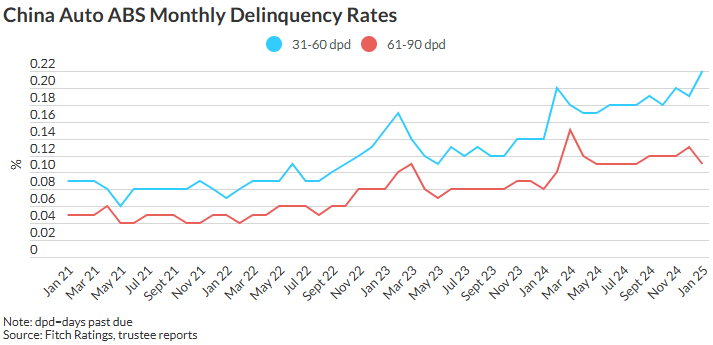
New consumer finance rules in China may pose risk to lenders: Fitch Ratings
Credit rating agency warns against possible decline in underwriting standards.
China seeks to give the country’s consumer finance market a boost through revised rules, but Fitch Ratings believes there’s a potential downside from the lender perspective.
“Lenders could face additional risks if the reform leads to looser underwriting standards or an aggressive increase in lending to less creditworthy borrowers,” said the credit rating agency in response to measures aimed at improving financial services and stimulating consumer spending.
“Changes introduced in late March by the National Financial Regulatory Administration extend the maximum consumer loan term from five to seven years and raise limits on individual consumer loan sizes. Longer amortisation periods could improve serviceability, but this effect will be countered if the increase in loan sizes is not commensurate to income levels.”
Fitch Ratings pointed out: “The increase in loan size limits could raise borrower leverage levels, and potentially default risk and expected credit losses for lenders, if accompanied by looser underwriting standards, for example, or increased lending to less creditworthy borrowers.”
It said that while a meaningful loosening of underwriting standards is not part of its current baseline assumptions, this could put pressure on the asset quality and profitability of banks over the longer term.
The credit rating agency added: “Regulators have relaxed the requirements on lenders to monitor the ultimate use of consumer loans. This could ease near-term repayment pressures for some borrowers, such as where loans are being taken to refinance other borrowings.
"However, this could increase the potential for misuse of loan proceeds, such as on property or equity market speculation, and raise asset-quality risks for lenders.”
Amongst Fitch-rated banks, exposure to consumer loans is generally moderate, at an average of approximately 5% of total lending. For some more exposed mid-tier lenders, the figure can be as high as 15%.

From the consumer perspective, benefits of the changes include increased availability of credit, standardised loan contracts, and greater transparency in terms of fees and costs. Oversight will also be strengthened to protect consumer rights and combat misconduct.
State news agency Xinhua previously reported: “The National Financial Regulatory Administration has called on financial institutions to diversify financial products, enhance digital and green finance solutions, and increase credit support for key consumption sectors – including wholesale and retail, accommodation, tourism, healthcare, and education.
“Banks are encouraged to issue more personal consumer loans while ensuring risk control; optimise loan amounts, terms, and interest rates; and explore the possibility of online credit card issuance and activation.”
According to Xinhua, more than 370 million customers borrowed from consumer finance companies in China in 2023.














